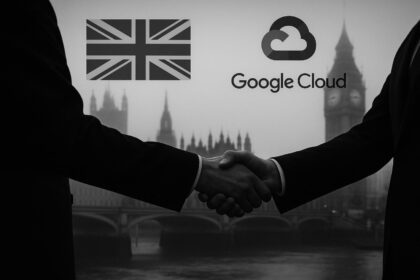The BBC’s two-part documentary delves into Baroness Bra’s tumultuous journey from lingerie entrepreneur to a central figure in a £200 million PPE contract controversy, revealing misled profits, unanswered questions, and the complex battle over her public and political reputation.
Michelle Mone, known as Baroness Bra, is a polarising figure whose rise and fall form the crux of the BBC’s two-part documentary “The Rise And Fall Of Michelle Mone.” The programme paints a complex picture of a woman who initially soared to prominence through successful entrepreneurship in the lingerie sector, only to later find herself ensnared in controversy surrounding a £200 million contract awarded to the company PPE Medpro, which is linked to her husband, Doug Barrowman.
Mone, elevated to the House of Lords by former Prime Minister David Cameron in 2015, has become a figure of intrigue and scepticism. Despite her stature, the documentary reveals a striking absence of public support; notably, neither her current nor former husband stepped forward for interviews, and even former employees chose to speak under the veil of anonymity. The only ally featured in the documentary is her therapist, who offers little more than a glimpse into Mone’s psyche without dispelling the cloud of controversy surrounding her.
Central to Mone’s current scrutiny is the PPE Medpro scandal, where the company has been accused of providing defective personal protective equipment during the COVID-19 pandemic. Reports have indicated that Mone and her family stand to gain approximately £60 million from the profits derived from these contracts, sparking outrage within political circles, particularly following revelations that she had misled the public regarding her financial benefits from the venture.
When questioned about her role in the scandal by journalist Laura Kuenssberg, Mone appeared visibly uncomfortable, a reaction punctuated by her fervent denials of wrongdoing—including claims of having no financial connections to the enterprise. Yet, evidence has surfaced suggesting that these denials were misleading at best. Documents show that Mone’s influence helped secure a place for PPE Medpro in a ‘VIP lane’ for expedited procurement, a process that has since been ruled unlawful by the High Court due to its lack of transparency and fairness.
In addition to the personal impact of these revelations, the implications for public trust in government practices during a crisis are profound. Critics have alleged that Mone’s conduct exemplifies a troubling blend of privilege and impropriety, with accusations suggesting that her business style, seen as brazen and aggressive, might attract less scrutiny if she were not a woman. As her former public relations advisor noted, her “deluded self-confidence” and selective relationship with the truth complicated her reputation, leaving her open to ongoing criticism.
Mone’s controversial past is interlaced with tales of both ambition and deception. Her early aspirations of becoming “the female Richard Branson” resonate throughout her narrative, yet they raise uncomfortable questions. One can’t help but consider whether the vitriol directed at her is perpetuated by deeper societal biases against women in business, particularly those who break the mould. Yet, as Mone’s story unfolds—marked by unfulfilled promises and bitter betrayal of public trust—her legacy remains overshadowed by the very controversies that catapulted her into the spotlight.
As this saga continues to develop, the blurred lines between ambition and ethical responsibility will undoubtedly fuel debate among the public and media alike. The outcome of ongoing investigations by the National Crime Agency, which includes examining potential fraud, only adds to the layers of complexity surrounding Mone and her operations. Whether she ultimately rehabilitates her image or is remembered as a cautionary tale remains to be seen, but her impact on perceptions of women in business—both positive and negative—will likely reverberate for years to come.
Reference Map:
- Paragraph 1 – [1], [4]
- Paragraph 2 – [1], [2], [5]
- Paragraph 3 – [3], [6]
- Paragraph 4 – [7]
- Paragraph 5 – [4], [5]
Source: Noah Wire Services
- https://www.dailymail.co.uk/tv/article-14759419/bbc-Baroness-Bra-CHRISTOPHER-STEVENS-Rise-Fall-Michelle-Mone.html?ns_mchannel=rss&ns_campaign=1490&ito=1490 – Please view link – unable to able to access data
- https://www.ft.com/content/98d3cdf0-f2bc-4038-9d6e-1e2b5c75f38a – A 46-year-old man was arrested in Barnet, north London, in connection with £200 million worth of UK government contracts awarded to PPE Medpro during the Covid-19 pandemic. The National Crime Agency detained him on suspicion of conspiracy to commit fraud and attempting to pervert the course of justice. PPE Medpro, owned by a consortium led by Doug Barrowman, husband of Conservative peer Baroness Michelle Mone, has faced controversy over allegations that the personal protective equipment supplied was not fit for purpose. Both Mone and Barrowman have denied any wrongdoing.
- https://www.theguardian.com/uk-news/2023/dec/17/michelle-mone-admits-she-stands-to-benefit-from-60m-ppe-profit – Former Conservative peer Michelle Mone has admitted to lying about her involvement with PPE Medpro, a company that secured lucrative government contracts to supply protective equipment during the pandemic. Mone acknowledged that she stands to benefit from profits of approximately £60 million from the deals. She expressed regret for her previous denials and stated that she was protecting her family. Mone and her husband, Doug Barrowman, have faced criticism and legal scrutiny over the contracts awarded to PPE Medpro.
- https://www.theguardian.com/uk-news/2023/dec/17/how-the-michelle-mone-scandal-unfolded-200m-of-ppe-contracts-denials-and-a-government-lawsuit – The article outlines the timeline of the Michelle Mone scandal, detailing the awarding of £200 million in government contracts to PPE Medpro, a company linked to Mone and her husband, Doug Barrowman. It covers the initial denials of involvement, the subsequent revelations through Freedom of Information requests, and the government’s lawsuit against PPE Medpro for supplying defective gowns. The piece also highlights the National Crime Agency’s investigation into alleged criminal offences related to the procurement of these contracts.
- https://www.theguardian.com/uk-news/2022/nov/24/michelle-mone-ppe-firm-revelations-prompt-anger-in-commons – Revelations that Michelle Mone and her children secretly received £29 million from the profits of PPE Medpro have prompted anger in the UK Parliament. Documents indicate that Mone’s referral of the company to ministers Michael Gove and Theodore Agnew helped it secure a place in the government’s ‘VIP lane’, leading to contracts worth over £200 million. The funds were transferred to an offshore trust, of which Mone and her adult children were beneficiaries. Mone’s lawyer previously denied any financial benefit or connection to PPE Medpro.
- https://www.theguardian.com/uk-news/2023/jan/04/ppe-medpro-uk-government-alleges-firm-supplied-defective-gowns-nhs – The UK government alleges that PPE Medpro supplied defective gowns to the NHS, leading to a breach of contract lawsuit. The gowns were rejected by health officials due to issues with labelling and sterilisation, rendering them unusable. The Department of Health and Social Care notified PPE Medpro of the rejection, citing non-compliance with medical device regulations and inadequate packaging. PPE Medpro has denied the allegations, maintaining that the gowns met contract specifications.
- https://www.washingtonpost.com/world/2023/12/20/baroness-michelle-mone-ppe-medpro-covid/ – Baroness Michelle Mone, a Conservative legislator, recommended PPE Medpro through the UK’s High Priority Lane, allowing the company to bypass standard procurement processes during the pandemic. Mone’s involvement was kept secret, with her lawyers denying any role in the deal. The High Court later ruled that the operation of the High Priority Lane was unlawful, as it unfairly expedited some contracts over others without justification. Mone’s family ties to PPE Medpro were also concealed from the public.
Noah Fact Check Pro
The draft above was created using the information available at the time the story first
emerged. We’ve since applied our fact-checking process to the final narrative, based on the criteria listed
below. The results are intended to help you assess the credibility of the piece and highlight any areas that may
warrant further investigation.
Freshness check
Score:
6
Notes:
 The narrative presents a detailed account of Michelle Mone’s involvement with PPE Medpro, including her recent admissions and ongoing investigations. The earliest known publication date of similar content is December 17, 2023, when The Guardian reported on Mone’s admission of lying about her links to PPE Medpro. ([theguardian.com](https://www.theguardian.com/uk-news/2023/dec/17/michelle-mone-admits-she-stands-to-benefit-from-60m-pounds-ppe-profit?utm_source=openai)) The Daily Mail article appears to be a republished version of this content, with no significant new information or updates. The lack of new insights and the recycling of earlier material suggest a lower freshness score.
The narrative presents a detailed account of Michelle Mone’s involvement with PPE Medpro, including her recent admissions and ongoing investigations. The earliest known publication date of similar content is December 17, 2023, when The Guardian reported on Mone’s admission of lying about her links to PPE Medpro. ([theguardian.com](https://www.theguardian.com/uk-news/2023/dec/17/michelle-mone-admits-she-stands-to-benefit-from-60m-pounds-ppe-profit?utm_source=openai)) The Daily Mail article appears to be a republished version of this content, with no significant new information or updates. The lack of new insights and the recycling of earlier material suggest a lower freshness score.
Quotes check
Score:
5
Notes:
 The quotes attributed to Michelle Mone in the Daily Mail article are identical to those reported by The Guardian on December 17, 2023. ([theguardian.com](https://www.theguardian.com/uk-news/2023/dec/17/michelle-mone-admits-she-stands-to-benefit-from-60m-pounds-ppe-profit?utm_source=openai)) This repetition indicates that the quotes have been reused without any new additions or variations, raising concerns about the originality of the content.
The quotes attributed to Michelle Mone in the Daily Mail article are identical to those reported by The Guardian on December 17, 2023. ([theguardian.com](https://www.theguardian.com/uk-news/2023/dec/17/michelle-mone-admits-she-stands-to-benefit-from-60m-pounds-ppe-profit?utm_source=openai)) This repetition indicates that the quotes have been reused without any new additions or variations, raising concerns about the originality of the content.
Source reliability
Score:
7
Notes:
 The Daily Mail is a widely read publication; however, it has faced criticism for sensationalism and inaccuracies in the past. The article in question appears to be a republished version of content from The Guardian, which is generally considered a reputable source. The reliance on a single source without additional corroboration from other reputable outlets diminishes the overall reliability of the narrative.
The Daily Mail is a widely read publication; however, it has faced criticism for sensationalism and inaccuracies in the past. The article in question appears to be a republished version of content from The Guardian, which is generally considered a reputable source. The reliance on a single source without additional corroboration from other reputable outlets diminishes the overall reliability of the narrative.
Plausability check
Score:
8
Notes:
 The claims regarding Michelle Mone’s involvement with PPE Medpro and the subsequent investigations align with previously reported events. The timeline of events, including the awarding of contracts and the National Crime Agency’s investigation, is consistent with known facts. However, the lack of new information or updates in the article suggests that it may not provide additional value beyond existing reports.
The claims regarding Michelle Mone’s involvement with PPE Medpro and the subsequent investigations align with previously reported events. The timeline of events, including the awarding of contracts and the National Crime Agency’s investigation, is consistent with known facts. However, the lack of new information or updates in the article suggests that it may not provide additional value beyond existing reports.
Overall assessment
Verdict (FAIL, OPEN, PASS): FAIL
Confidence (LOW, MEDIUM, HIGH): HIGH
Summary:
 The narrative fails to provide new or original information, relying heavily on previously reported content from The Guardian. The recycling of quotes and the absence of fresh insights indicate a lack of originality and freshness. The reliance on a single source without additional corroboration further diminishes the reliability of the report.
The narrative fails to provide new or original information, relying heavily on previously reported content from The Guardian. The recycling of quotes and the absence of fresh insights indicate a lack of originality and freshness. The reliance on a single source without additional corroboration further diminishes the reliability of the report.













